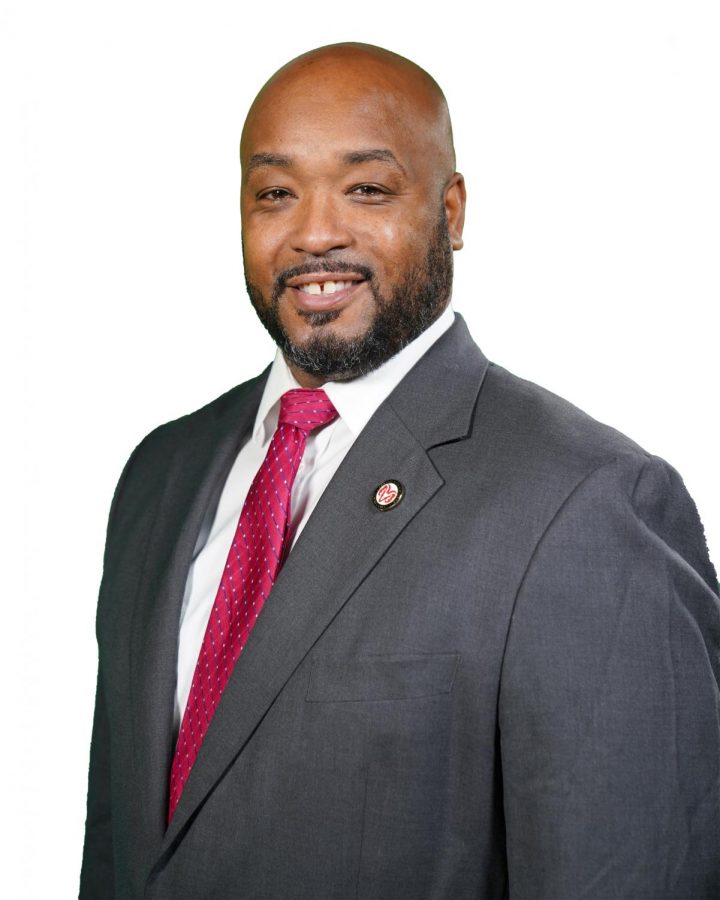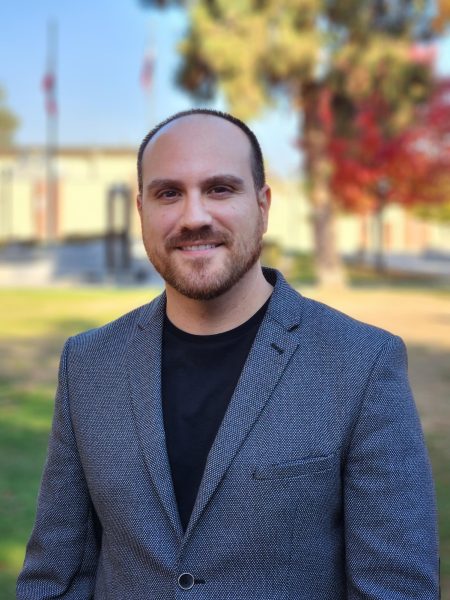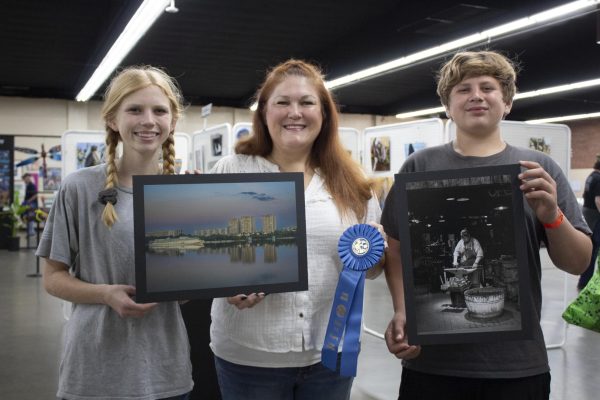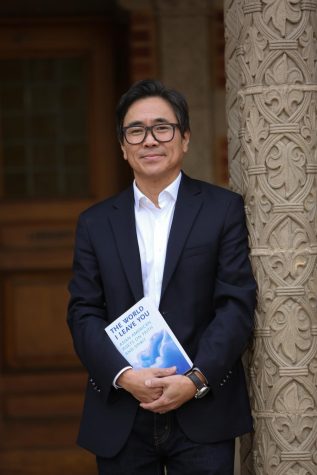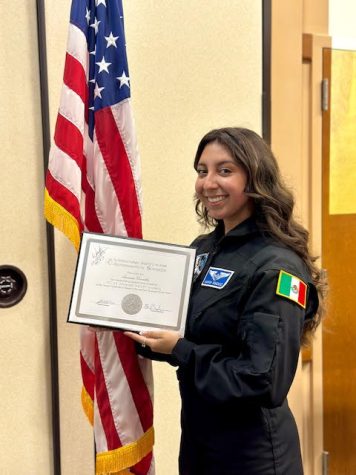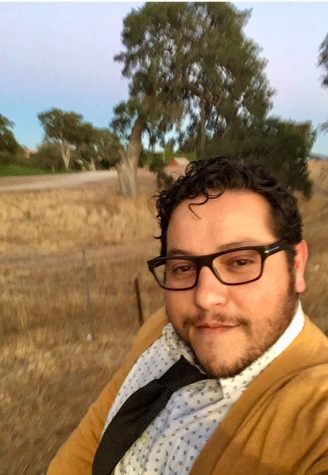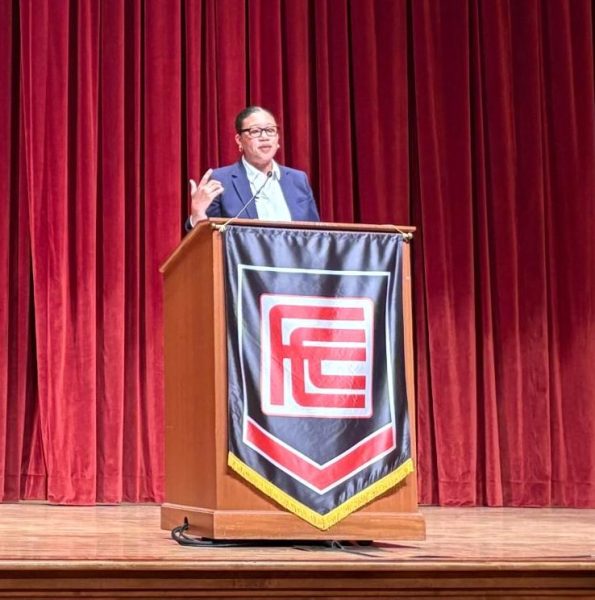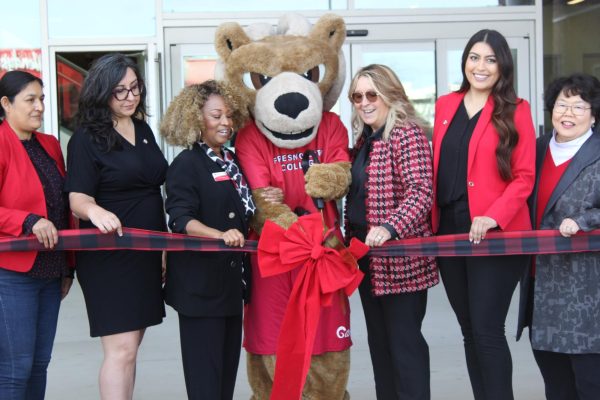Derrick Johnson’s Mission: Being a Leader for Athletes and a Conduit for the Community
From being drafted by the Florida Marlins in 1993 and 1994 to overseeing college sports programs across the country, Fresno City College ’s new athletic director Derrick Johnson has had a lifelong involvement with sports.
Johnson became athletic director of FCC on July 1, 2020.
Sports have been a huge factor in Johnson’s life since he was young. He grew up playing every neighborhood sport, including ones that him and his brothers made up.
“Our parents had to try to find us to come into the house because we were outside playing sports,” Johnson said.
Johnson’s love for sports continued throughout his life. He played baseball in college at the University of Southern Carolina. He then became the head baseball coach and assistant athletic director at Benedict College, where the athletic director suggested that he focus on administration.
“He saw talent in me that I didn’t see at the time,” Johnson said.
This led Johnson to pursue his Master’s Degree in Sports Administration and Management from the United States Sports Academy. He then became the athletic director at Riverside City College, Elizabeth City State University and Middlesex County College.
He credits playing sports and former coaches as factors that have molded him into the person and administrator he is today.
“Athletics has played a huge part in who I am, and really just the success that I’ve had as an administrator too,” Johnson said.
Johnson has learned about the importance of mentorship from his former coaches, a value he says contributes to being both a strong mentor for student athletes and a leader for the athletic department.
Johnson mostly expresses his interest in wanting college athletes to succeed on and off the field.
On the field, Johnson wants student athletes to win championships. Off the field, he wants them to graduate and transfer to a four year college, if that is part of their plan.
Johnson said he wants to ensure student athletes succeed by, “Reinforcing the infrastructure we have in place, and finding out what the bottlenecks are at the college that are holding student athletes back and creating that access for our demographic.”
When asked what he likes about sports so much he replied, “Overall, seeing the development of young student athletes become productive citizens in society.”
For Johnson, this means athletes graduating, developing careers, serving the community and making positive impacts in their community.
As a former student athlete, Johnson relates to students and understands the struggles they face, like not adapting well to the college experience, struggling to prioritize responsibilities and managing time. This is why he believes that staying connected with students is an important part of being an administrator and mentor.
“I still keep in contact with all of the players I’ve coached at the college level, most of them we’re connected through Facebook,” Johnson said.
Not only does Johnson invest in his students, he also invests in his coaches, staff and faculty. It is important to him that everyone in the athletic program is being included because their input is critical for the success of athletics at FCC.
“I’m a manager and a leader that likes to listen and find ways that I can make the job easier here for the people that I serve, which is the faculty, the staff and the students,” Johnson said.
FCC has over 100 combined years of head coaching experience in its top athletic programs, and Johnson is ready to use those successful coaches as a resource to enhance FCC’s success and facilities. He plans to use those coaches in ways like “making sure they’re on committees, making sure they’re part of the process and vetting things through them.
In addition, Johnson plans to use coaches as “conduits to connect to the community.” Connecting to the community and creating community engagement opportunities is important to Johnson.
He explains that these opportunities can occur in many different ways, such as connecting student athletes to programs where they can encourage children to finish school. Johnson says being able to connect and engage with people outside of FCC is a factor that helps the athletic program progress.
“Using our athletic program to engage with the community, the local high schools, the local elementary schools is an opportunity for athletics to be a power for good in those communities,” Johnson said.
Johnson’s experience as Assistant Director of Public Relations at Benedict College “allows him to motivate and understand what factors are in moving a sizable program forward,” and one of those factors is marketing the FCC athletic department to the community.
Through marketing and branding, Johnson hopes that the athletic department and FCC can recruit people from the community to become students or student athletes.
From a marketing and a community standpoint, Johnson says that FCC’s athletic program’s community engagement has to improve.
Some positive marketing can come from “realizing where we are in a community, and realizing we have a responsibility not just to our students, but to the overall community in which we serve,” Johnson said.
Johnson said connecting with the community, student athletes, faculty and staff during the COVID-19 pandemic has not been an easy task.
“It’s hard for me to connect right now with our coaches. I normally try to make phone calls with our coaches every day,” he said.
As for connecting with student athletes during the pandemic, Johnson said he engages with them through some in-person activities or virtually through social media, text messaging and Zoom.
While Johnson does want sports to commence at FCC, he and athletes have to wait for the direction of the district and of the California Community College Athletic Association. Overall, Johnson wants students and faculty to stay safe.
“We’re advocating for a safe return of sports,” Johnson said.
Johnson admitted that overseeing 21 sports can be daunting, however it was an attractor for him to be a part of a big program.
“I want to be a part of that community college that truly embraces athletics. That sees its value in a community, sees its value within the infrastructure of the college and how the college connects with the community,” Johnson said.
Matthew Menchaca is a 22-year-old Fresno City College student who was born and raised in Madera, CA. He currently lives in Madera with his girlfriend and...

